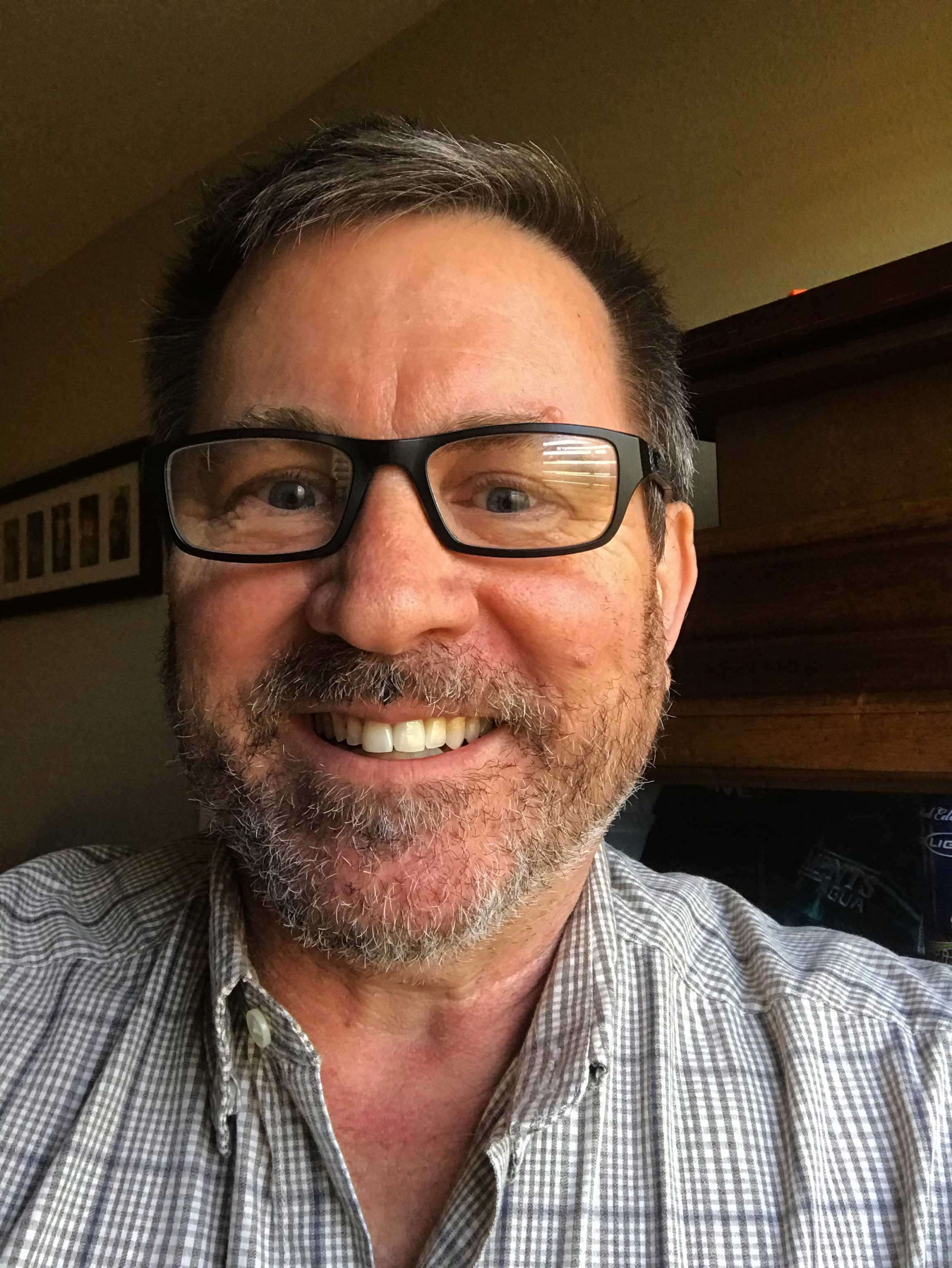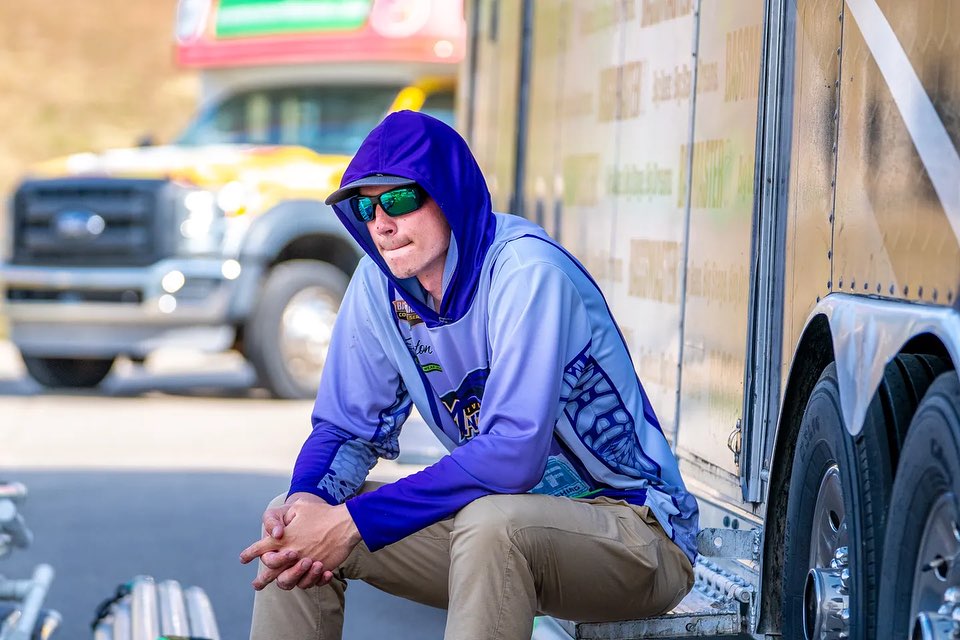
The Fothergills of Grand Rapids, Minn., lived through weeks of hell last summer before a fairy-tale ending.
Far away at college in Alabama, Easton Fothergill, 21, suffered a life-threatening illness, sending Gordon and Jenny through every parent’s worst nightmare. Weeks before the biggest tournament of his life, Easton underwent emergency brain surgery, but then he beat the clock, recovering in time to win a berth to the 2024 Bassmaster Classic.
“It’s crazy. It still feels unreal,” said Fothergill, amazed he felt well enough to compete in the College Classic Bracket presented by Lew’s. “I was super grateful just to even be there. It was such a cool experience.”
What he and his parents went through leading up to the Bracket was anything but cool. Easton’s brain abscess could have left him with permanent brain damage or taken his life.
While Easton’s pain was debilitating, there was extreme mental anguish for Gordon and Jenny.
On a harrowing drive from Grand Rapids, Minn., to Birmingham, Ala., to be with their son, the Fothergills prayed for the best but feared the worst. Gordon’s mind raced through myriad scenarios, from incapacitation to burying his son.
Jenny agreed it was a terrible, heart-wrenching feeling, yet after the ordeal, she marveled at her son’s determination and strength.
“It was his dream,” Jenny said, “and he made it happen, against all odds.”
Ailing at national championship
Fothergill and his University of Montevallo teammate, Nick Dumke, had a great season, earning Team of the Year before the Aug. 10-12 Strike King Bassmaster College National Championship presented by Bass Pro Shops at Pickwick Lake.
Fothergill, who had a history of migraines, was suffering through painful headaches during the event. So bad, he actually passed out on the boat. There was concern, but over-the-counter medicines allowed him to continue. He pressed through to a fifth-place finish and went back to school, only to get worse.
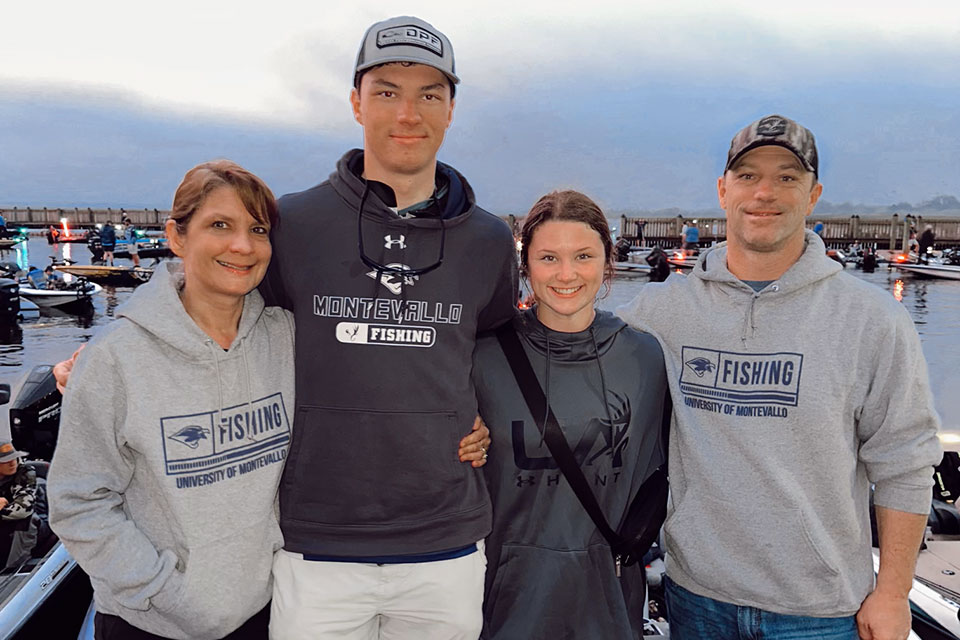
“That week is when things got really bad,” Fothergill said. “The pain was something beyond anything I’ve ever experienced.
“I was sleeping literally all day. I wasn’t getting out of bed. I wasn’t eating either. That’s when my friends said, ‘We have to figure something out.’”
They took Fothergill to a clinic, where he was treated for migraines with steroid shots and Benadryl. He left feeling great and was told to sleep it off.
“Then I woke up the next morning in excruciating pain,” he said. “I hardly got out of bed the next three days.”
Jenny, who talks to Easton regularly, was keeping tabs. Seeing he hadn’t used his phone in almost a day, she knew it was more than migraines and took action. She called his roommates to get him to an emergency room or there would be an ambulance at their front door in 20 minutes.
At Shelby Baptist, doctors thought the symptoms were consistent with a migraine, but a CT scan was performed to be safe.
“Ten minutes later they came back and said you have a mass on your brain. We’ve got to take care of this now,” Easton said. “They knew something was serious. That’s why they got me in an ambulance up to UAB,” Alabama’s only Level 1 trauma center.
Bad news at the Fair
The Fothergills were at the Itasca County Fair when Jenny’s phone rang.
“It’s the hospital,” Gordon said. “She walks away. Oh my gosh. She turns and is walking back at me with this horrible look on her face. ‘They found a mass.’ And starts crying.”
They hurried home, threw some clothes in a bag and with daughter, Jaci, 19, embarked on a panic-stricken, 1,200-mile drive.
“We jump in the car and a million thoughts go through your head,” Gordon said. “I went through all the ranges of emotions. I realized it was totally out of our hands. I felt so helpless.”
It was around midnight on Aug. 18 when Easton was checked into UAB. An MRI was performed around 3 a.m., and he was soon back in a room.
“Ten minutes later the neurosurgeon said, ‘You’re going surgery right now. You have an abscess,’” Easton said.
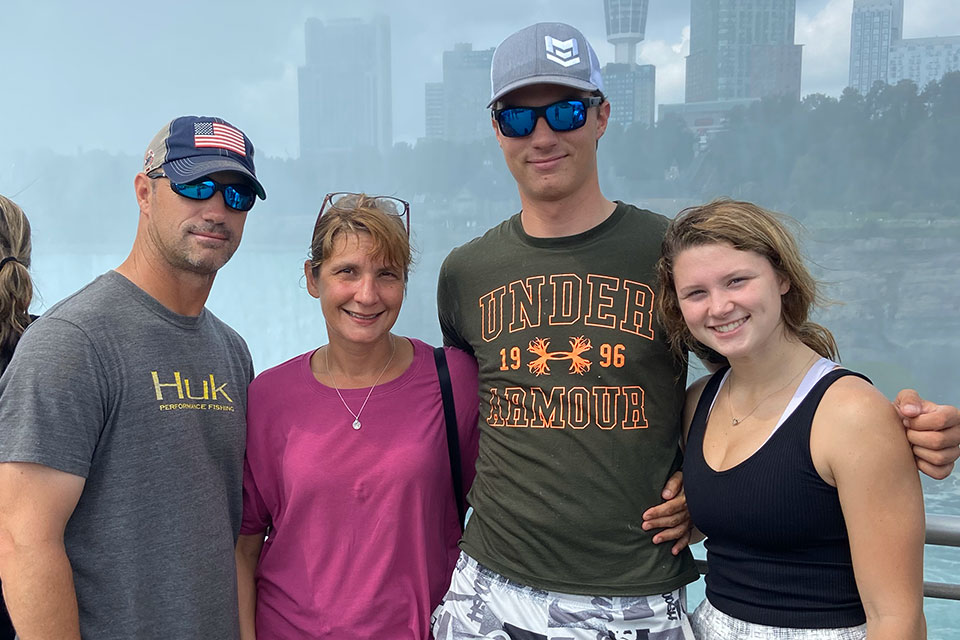
Going under at UAB
The MRI showed a large abscess, which usually occurs when bacteria enters either through blood or an ear or sinus infection. Treatment involves antibiotics and most often surgery.
Well on their way to UAB, Gordon and Jenny were informed Easton was going into surgery. The helplessness increased.
“We’re just trapped in what’s happening,” Gordon said. “We just keep driving, driving, hoping everything goes well. It’s brain surgery. You don’t know what the outcome is. Don’t know if he’ll come out unscathed or if he’s going to be someone other than we know.
“You don’t know if we are even going to talk to him truly again. They remove a large mass and it’s not even the normal Easton again. Is it going to be cancer? I’m thinking this could be the end. I basically wrote his obituary in my mind.”
A call for hope
News from the neurosurgeon that it was an abscess, not cancer, was of some relief and offered hope.
“Easton kind of makes light of the whole situation, but it was bad,” Jenny said. “Every follow-up, the neurosurgeon says you got lucky to get in when you did.”
Although its origins stay a mystery, the abscess was mammoth, measuring 5.2 centimeters by 3.7, about the size of a tangerine. It was shifting his brain, so permanent damage and seizures were further concerns.
“We were told how close it was to really bad,” Gordon said. “Less than a centimeter to pushing into vessel where we would not have Easton.”
The surgeon drilled a hole in Easton’s skull above his right eye and drained about 60% of the abscess. A culture determined three bacteria, which will require antibiotics for 20 weeks.
When Easton was taken from ER recovery into a room, his parents were there with Montevallo fishing coach William Crawford and the school’s financial advisor DeAnna Smith and her husband.
“It’s a memory I’ll never forget,” Easton said. “I just got my head drilled into, and there’s my fishing coach standing there looking at me.”
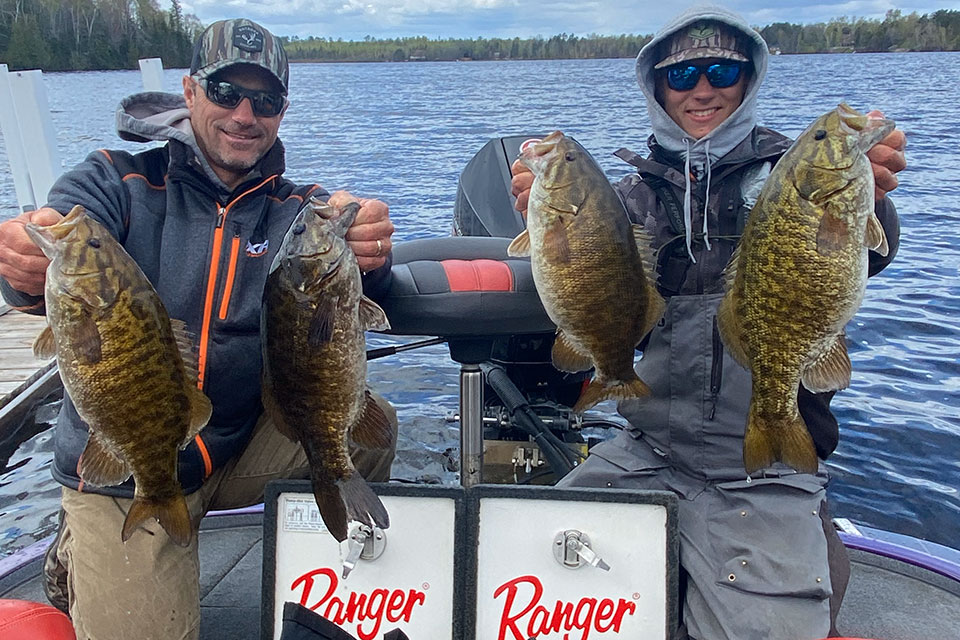
“I was really out of it. I slept almost all day. My brain got really swelled up, and they believe that’s what made me really tired.”
Life first, then fishing, maybe
Sleep was good. The Fothergills were comforted with his every breathe as they camped in the room for a week. And they quickly realized his mind wasn’t affected.
“There were periods when he was awake and chatting,” Gordon said, “and every once in a while we’d get his funny sense of humor. He’d joke about something. Yeah, he’s there.”
The College Bracket was more than month away, but getting well enough to compete was among the first things Easton talked about. Right before Easton was released for weeks of home care, Gordon asked his thoughts.
“Even in his state of absolute exhaustion, he paused, turned his head and looked me straight in the eyes,” Gordon said. “I’m fishing that Bracket tournament.’ At that point, I knew this young man is going for it.”
Jenny was doubtful. Like Gordon, she knew the magnitude of the opportunity before her son, but their son’s health was of utmost importance.
“In my mind, there’s no way, even if he’s feeling better,” she said. “I thought there’s no way he’ll have the stamina to do that.”
Home to heal
Home in Grand Rapids, as intravenous antibiotics dripped into Easton’s arm, exhaustion continued. He was worried he wouldn’t get to compete.
“I would wake up at 2 in the afternoon,” Easton said. “Oh my gosh, I didn’t want to do anything. There’s no way I’m going to fish, but I wanted to so bad.
“Two weeks before the actual event, I was starting to come around a little bit. I started coming around at the perfect time. I was going outside and playing with my dog, trying to be as active as possible to work this tiredness off.”
Hoping he could somehow make the Sept. 30-Oct. 2 Bracket, Easton studied Kansas’ Milford Lake. There was not much about bass fishing on the internet, except the 2018 Bracket dual Nick Ratliffe won against Nolan Minor. He ended up fishing pretty much how they did.
“You can find basically nothing on bass. It’s all wipers and catfish. It made me believe it would be a grinder tournament, which it was,” said Easton, who scoured his standby, GoogleEarth. “I would say three quarters of the spots I caught my fish off in the tournament I found beforehand. That was super cool, being laid up at home all the way across the country and still doing research.”
More hope came in weekly MRIs, which showed the abscess kept shrinking. On Sept. 17, Easton moved back to Montevallo, hoping to catch up on a business marketing degree he should earn in May.
Attending classes, Easton became fatigued around noon each day and had to nap, but the energy began to return. After a week of school, he wasn’t hitting the wall. With just days before he needed to travel, doctors cleared him.
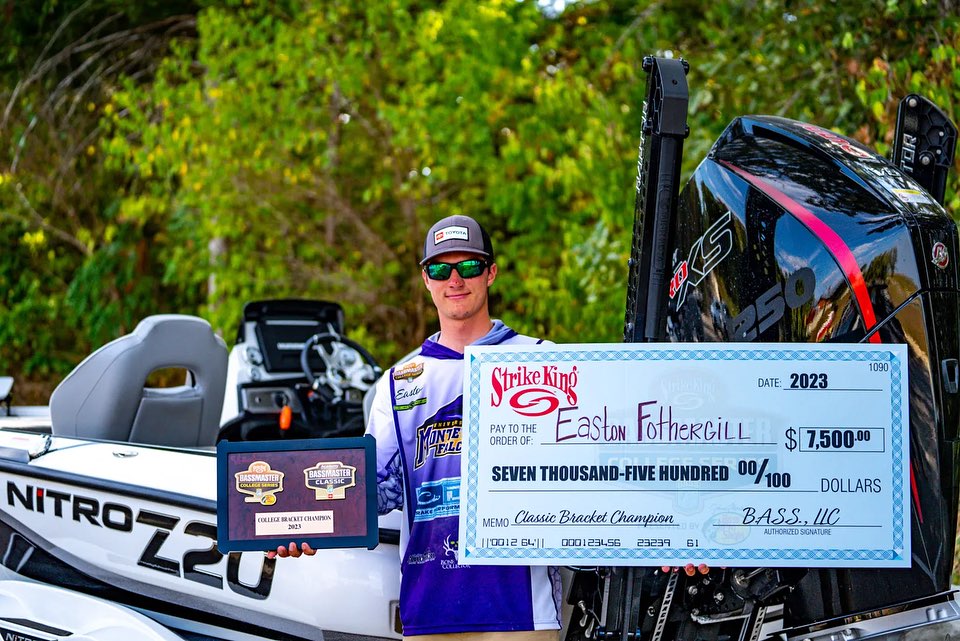
“As long as the abscess is still decreasing,” Easton said, “I would be able to fish … as long as I felt up to it.”
Big dream on big stage
Gordon, a tournament angler for bass and walleye, instilled the fishing bug in Easton, who’s dreamed of the Classic for almost a decade. They fish tournaments together and follow Bassmaster closely. He calls Easton his “bud,” so it stung that he’d possibly miss his chance to perform on college’s biggest stage.
“It just seemed so unfair … Life’s not fair, ” Gordon said. “We have an appreciation, better than most, what all this means to a young man. He’s very passionate chasing this dream. And he finally gets there and gets to go fish the Bracket. We understood how big this was.
“When the doctor released him, he won his battle. He gets to go fish it.”
After a day of practice, high winds canceled the seeding round. Easton, awarded the No. 1 seed, beat Montevallo teammate Jack Alexander in the first round. Potential fatigue was most likely quelled by adrenaline.
“I wasn’t really tired, but for some reason, my legs got so unbelieving sore,” Easton said. “I had laid in bed for a month. Now I’m standing in a boat for eight, 10, 12 hours. My legs were super sore, kind of unexpected for me.”
After winning his semifinal against Auburn’s Hayden Marbut, part of the national championship team, he faced the other half in Tucker Smith and his long list of accolades. Putting the past weeks out of his mind wasn’t easy – he worked to forget his fortunes and concentrate on fishing.
“It did cross my mind a bunch,” he said. “It’s crazy just to even be here. I tried to block it out — I have a job to do there.”
With the biggest bag of the week, 11 pounds, 13 ounces, Easton achieved his dream, topping Smith’s 9-8 to punch his Classic ticket for Grand Lake, Okla., March 22-24.
From depths to heights
“To see him cry on stage just told me what that meant to him,” Gordon said. “The whole event was just so stressful. I wanted success for him because he wanted it so bad. How the story played out, it was unbelievable. It just felt like that’s how the story had to be written.”
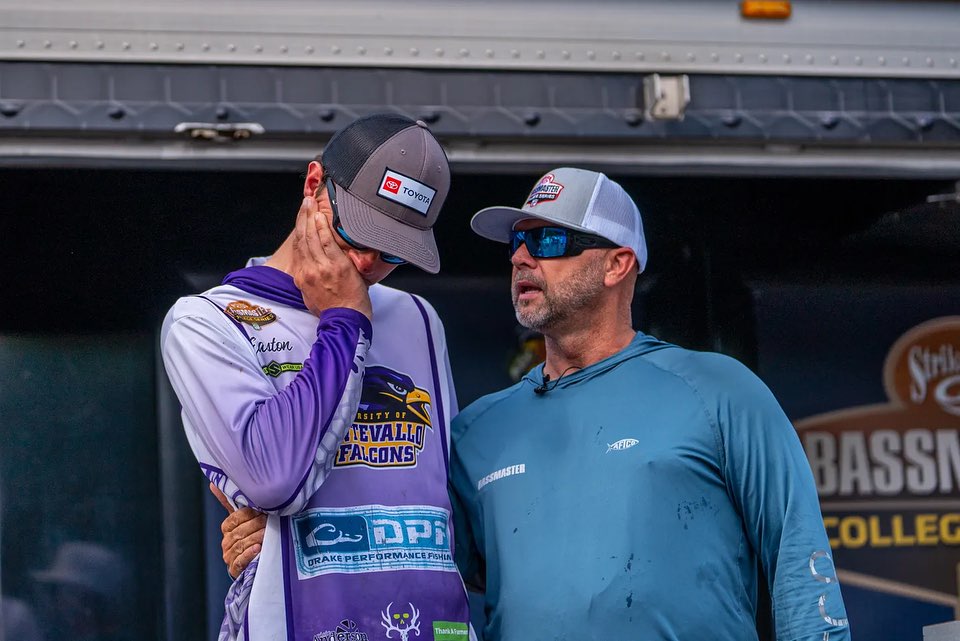
Jenny said she was extremely proud to see Easton fight through such adversity.
“In all his 21 years, I don’t think he’s ever complained about anything,” she said. “The kid will never complain or say anything bad about anybody. Through the whole illness of his, he was upbeat. I would like to learn a lesson from him how to do that because I wasn’t.
“To get through what he did is amazing. He has determination like no other person I’ve ever seen. When he sets his mind to something, it will happen.”
The ordeal still affects Gordon. He’s ecstatic for his son, but there’s an open wound that he almost lost him.
“I’m still reeling from it,” he said. “As much as I want to be joyous in this whole thing that’s now turned around, that hit so hard. I can’t accept this awesomeness that has happened. I accept it, but it’s different. To be honest, I still feel scarred from it.”
The family has been through a lot. Easton put it into perspective, although admitting he can’t fully express it.
“Now I know what God’s vision was,” he told Bassmaster reporter Chris Decker right after winning. “It is crazy special. The fact I wasn’t even planning on being here and then winning it, I really can’t put it into words.”

